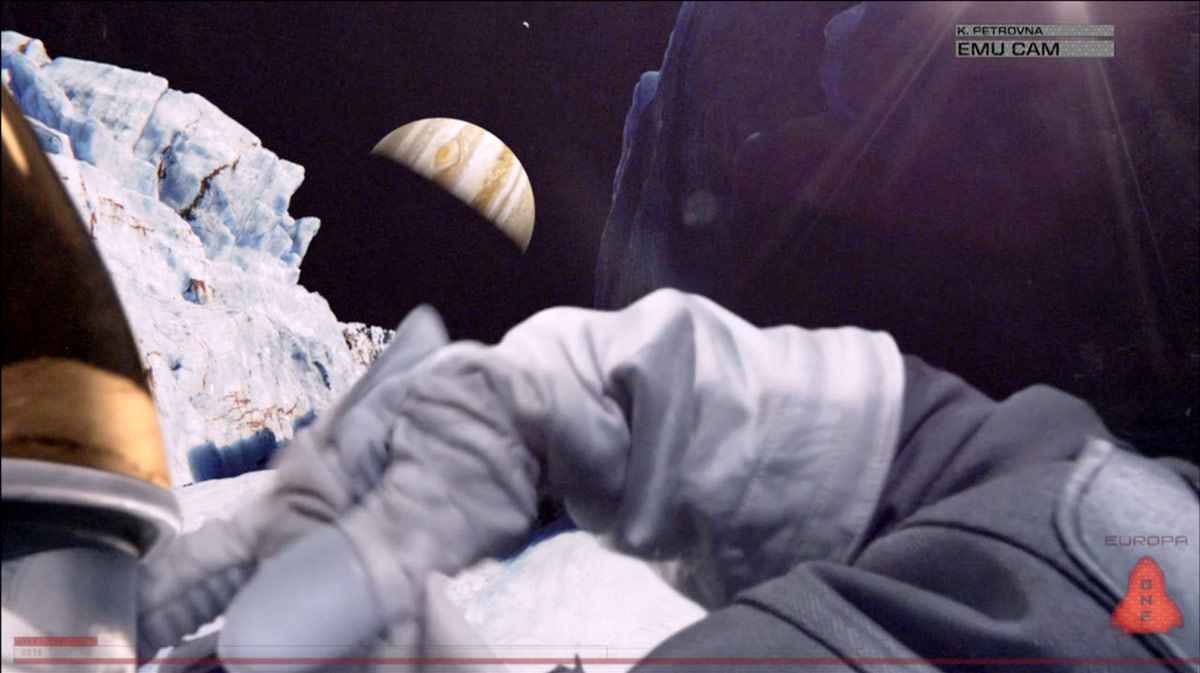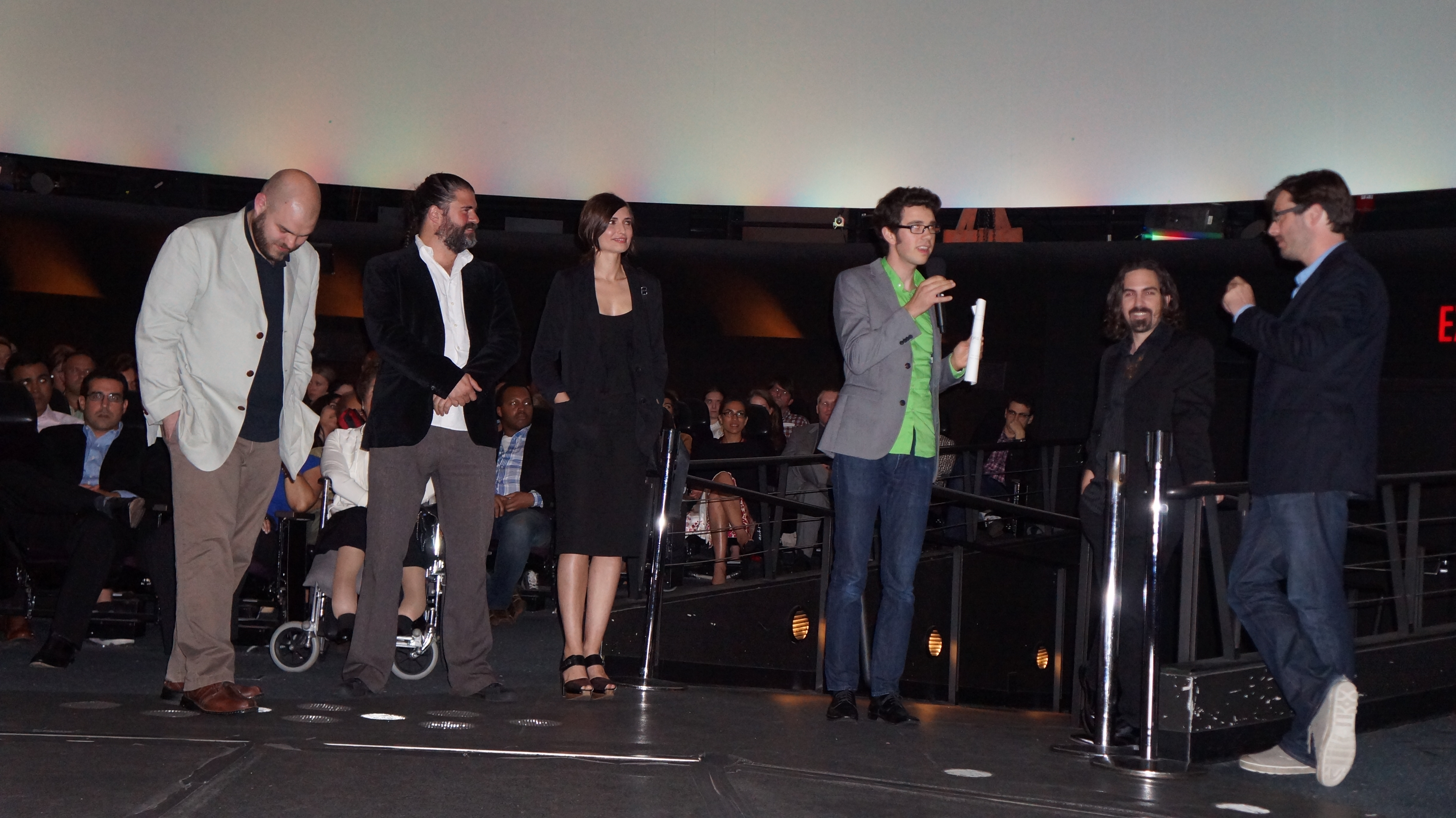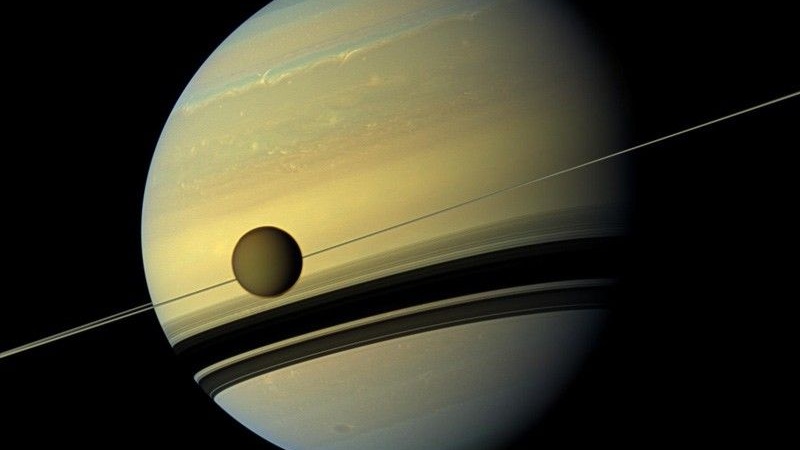Sci-Fi Film 'Europa Report' Melds Space Fantasy and Fact

Breaking space news, the latest updates on rocket launches, skywatching events and more!
You are now subscribed
Your newsletter sign-up was successful
Want to add more newsletters?

Delivered daily
Daily Newsletter
Breaking space news, the latest updates on rocket launches, skywatching events and more!

Once a month
Watch This Space
Sign up to our monthly entertainment newsletter to keep up with all our coverage of the latest sci-fi and space movies, tv shows, games and books.

Once a week
Night Sky This Week
Discover this week's must-see night sky events, moon phases, and stunning astrophotos. Sign up for our skywatching newsletter and explore the universe with us!

Twice a month
Strange New Words
Space.com's Sci-Fi Reader's Club. Read a sci-fi short story every month and join a virtual community of fellow science fiction fans!
NEW YORK — The minds behind the movie "Europa Report" allowed reality to shape the fictional world they created.
Everything from real NASA science to the commercial space industry played a role in the script and making of the film, released in theaters today (Aug. 2), but "Europa Report" was initially much smaller in scope.
"At first it was just me and a bunch of books," screenwriter Philip Gelatt told the packed crowd at the movie's New York premiere here at the American Museum of Natural History. "There are two parts of the science: There's the space travel and then the science of Europa. I thought I had a pretty good handle on the space travel concept, so I started with the Europa science and then once there was a version of the script that was just me and the books, then we started talking to scientists which got much more intense and specific." [See Photos from "Europa Report"]
The movie follows the fate of the first crew to leave Earth bound for Europa. Sent to Jupiter's icy moon by the fictional private spaceflight firm, Europa Ventures, the international team of astronauts works toward a singular mission: to search for life on the moon.
Private spaceflight plays a pivotal role in the film partially because Gelatt wanted to model his script after the real world of spaceflight today.
"It was always part of the design that it would be a private space mission, because, in some sense, it just felt more realistic," Gelatt told SPACE.com "That's kind of the direction we're headed. In an early version of the script, it was still a private mission but it was a private mission [with] a NASA contract. There was a little bit of a government element, which was taken out. All that stuff going on on Earth wasn't as interesting as the actual mission."
NASA scientists Kevin Hand and Steven Vance helped craft the script, acting as science advisors during production and after filming ended.
Breaking space news, the latest updates on rocket launches, skywatching events and more!
"When I read the first version of the script that came my way, it already had quite a bit of research and quite a bit of accurate information which was one of the things that drew me to it."
That attention to detail also extended to the stars of the film. They immersed themselves in their characters to understand the science that motivates them.
"I did a bunch of reading," Karolina Wydra, who plays a marine biologist going to Europa in the movie, said during the premiere. "I bought a book on oceanography. I spoke to a marine biologist, so it was really interesting to get into the mind of somebody that has devoted her life to research. When I asked her about [what she would do] if she got the chance to go to Europa, if she would say yes. She said 'absolutely.'"
"Europa Report is also available online through video on demand services.
Follow Miriam Kramer @mirikramer and Google+. Follow us @Spacedotcom, Facebook and Google+. Original article on SPACE.com.

Miriam Kramer joined Space.com as a Staff Writer in December 2012. Since then, she has floated in weightlessness on a zero-gravity flight, felt the pull of 4-Gs in a trainer aircraft and watched rockets soar into space from Florida and Virginia. She also served as Space.com's lead space entertainment reporter, and enjoys all aspects of space news, astronomy and commercial spaceflight. Miriam has also presented space stories during live interviews with Fox News and other TV and radio outlets. She originally hails from Knoxville, Tennessee where she and her family would take trips to dark spots on the outskirts of town to watch meteor showers every year. She loves to travel and one day hopes to see the northern lights in person. Miriam is currently a space reporter with Axios, writing the Axios Space newsletter. You can follow Miriam on Twitter.

